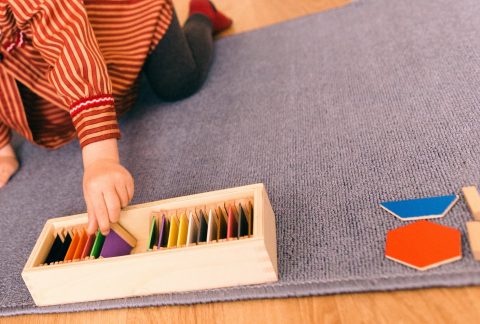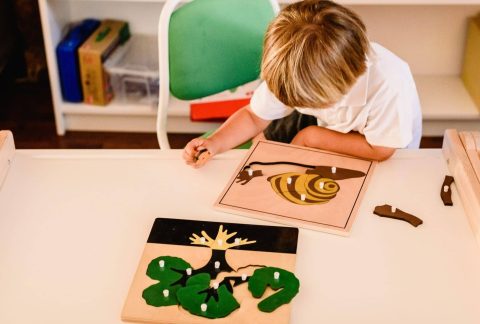- Teaching team with great knowledge and international experience in Montessori classrooms.
- Didactic material: in our virtual campus you will find theoretical and practical content and videos.
- Instant: you can start the course as soon as you sign up!
The learning of Math is one of the aspects that distinguishes Montessori pedagogy. This teaching happens easily and awakens interest in children, thanks to the materials used and the criteria followed when introducing them.
During the 3-to-6-years stage, mathematical skills begin to develop through concrete experiences that allow the child to understand the concepts, instead of mechanising them, and to relate them to everyday situations.
“The teaching of Mathematics should be completely transformed, starting from a sensory preparation, starting from a concrete knowledge” Maria Montessori



